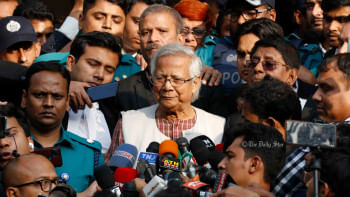Bring back missing $12b in export proceeds

The government should take steps to bring back the $12 billion in export earnings that went missing from the overall export proceeds of fiscal 2022-23, according to a noted economist.
Bangladesh is currently facing a foreign currency crisis and so, bringing in these export earnings would help alleviate pressure on the country's reserves.
So, policymakers like Bangladesh Bank, the National Board of Revenue and Export Promotion Bureau (EPB) should work on resolving this issue, said Mustafizur Rahman, a distinguished fellow of the Centre for Policy Dialogue.
With this backdrop, Rahman suggested the government show zero-tolerance for those who avoid repatriating their export earnings and thereby deprive the state of its share.
EPB data shows that export proceeds in the previous fiscal amounted to $55 billion while Bangladesh Bank reported $43 billion, with exporters attributing the discrepancy to the cancellation of work orders and their discount offers.
In order to boost the country's exports, the economist suggested diversifying the garment industry with non-cotton apparels.
In addition, he urged for diversifying the country's export basket by further infiltrating the $1.50 trillion global market for pharmaceuticals, enhancing productivity and exploring more leather markets.
It is expected that the country's export earnings will reach more than $100 billion if those diversifications take place in next 10 years.
"Still, it might not be possible to earn like Vietnam at $350 billion," Rahman said.
He blamed some wrong polices taken by the country, such as not depreciating the local currency against the US dollar over the last six years, for creating a challenging time at present.
Even two years ago, the country's foreign currency reserve stood at $48 billion while it has now fallen to $19 billion because of these wrong policies.
The exchange rate was hovering around Tk 86 some 18 months ago and now the official rate is Tk 112.
But had the taka been depreciated on time, the rate could have been fixed at about Tk 96 per greenback, Rahman said.
However, higher productivity will require higher payments for workers as the low productivity with low wage model will not work anymore to be more competitive in the global fashion market, he added.
Rahman was speaking at a seminar on "Global Economic Slowdown, Bangladesh's Apparel Industry and Decent Work", organised by the Bangladesh Institute of International and Strategic Studies (BIISS) at its auditorium in Dhaka yesterday.
Various government high-ups, academicians, exporters, businessmen, trade experts and businesspeople participated in the event.
Major General Md Abu Bakar Siddique Khan, director general of BIISS, delivered the welcome address while Ambassador AFM Gousal Azam Sarker, chairman, presided over the seminar.
Masud Bin Momen, senior secretary to the Ministry of Foreign Affairs, touched upon the issue of the newly announced US labour policy.
He also emphasised on collaborative efforts from the government, entrepreneurs and labourers to overcome any future challenges in the garments sector.
Tapan Kanti Ghosh, senior secretary to the commerce ministry, said Bangladesh's apparel industry has successfully secured its hold on new markets in Australia, Japan and South Korea.
Mahfuz Kabir, research director of the BIISS, made the keynote presentation.
Mashiur Rahman, former economic affairs adviser to the prime minister, emphasised on skills development, which he suggested should be associated with a necessary wage raise.
He also drew attention to the changing nature of the global market, where developed countries are increasingly looking inward.
Faruque Hassan, president of Bangladesh Garment Manufacturers and Exporters Association, Kamran Tanvirur Rahman, president of the Metropolitan Chamber of Commerce and Industry, Md Ehsan-E-Elahi, secretary to the Ministry of Labour and Employment, and Akhter Hossein, vice-president of the Bangladesh Knitwear Manufacturers and Exporters Association, also spoke.

 For all latest news, follow The Daily Star's Google News channel.
For all latest news, follow The Daily Star's Google News channel. 




Comments